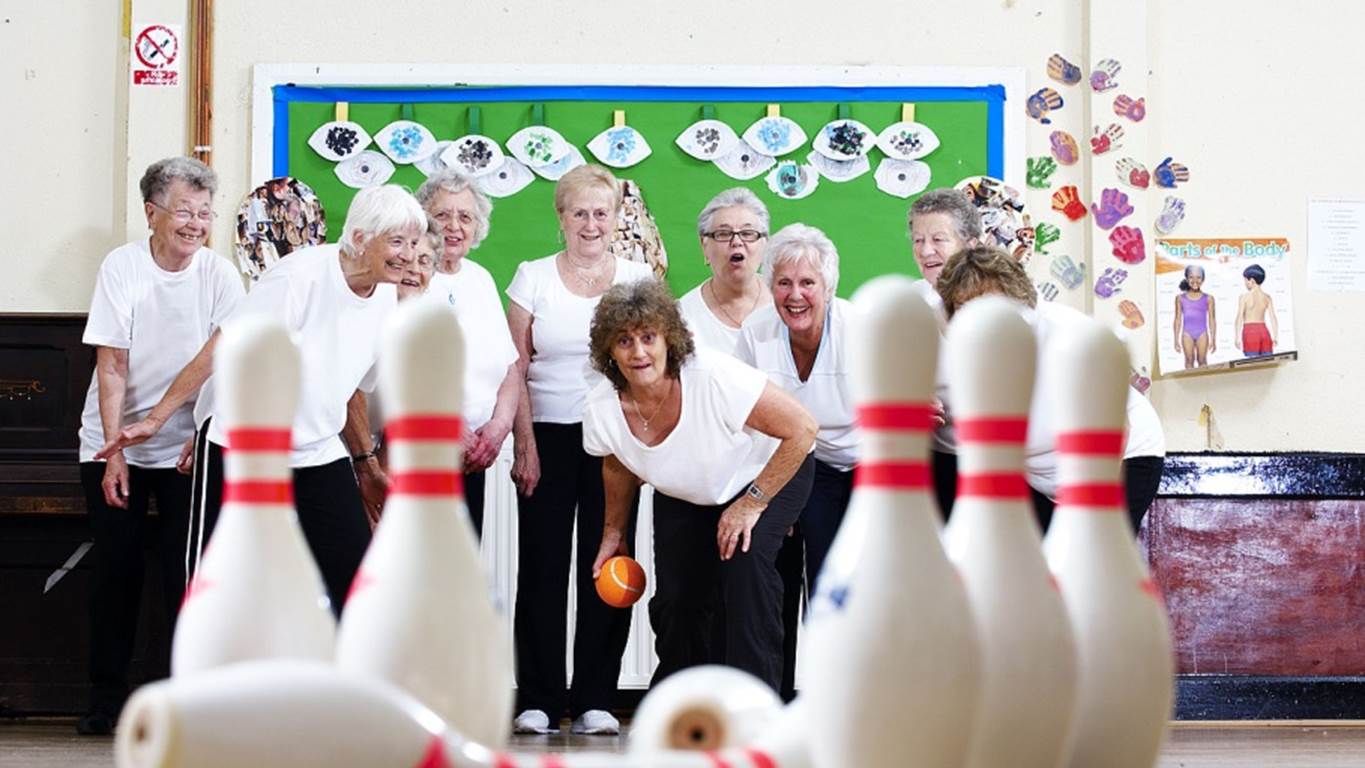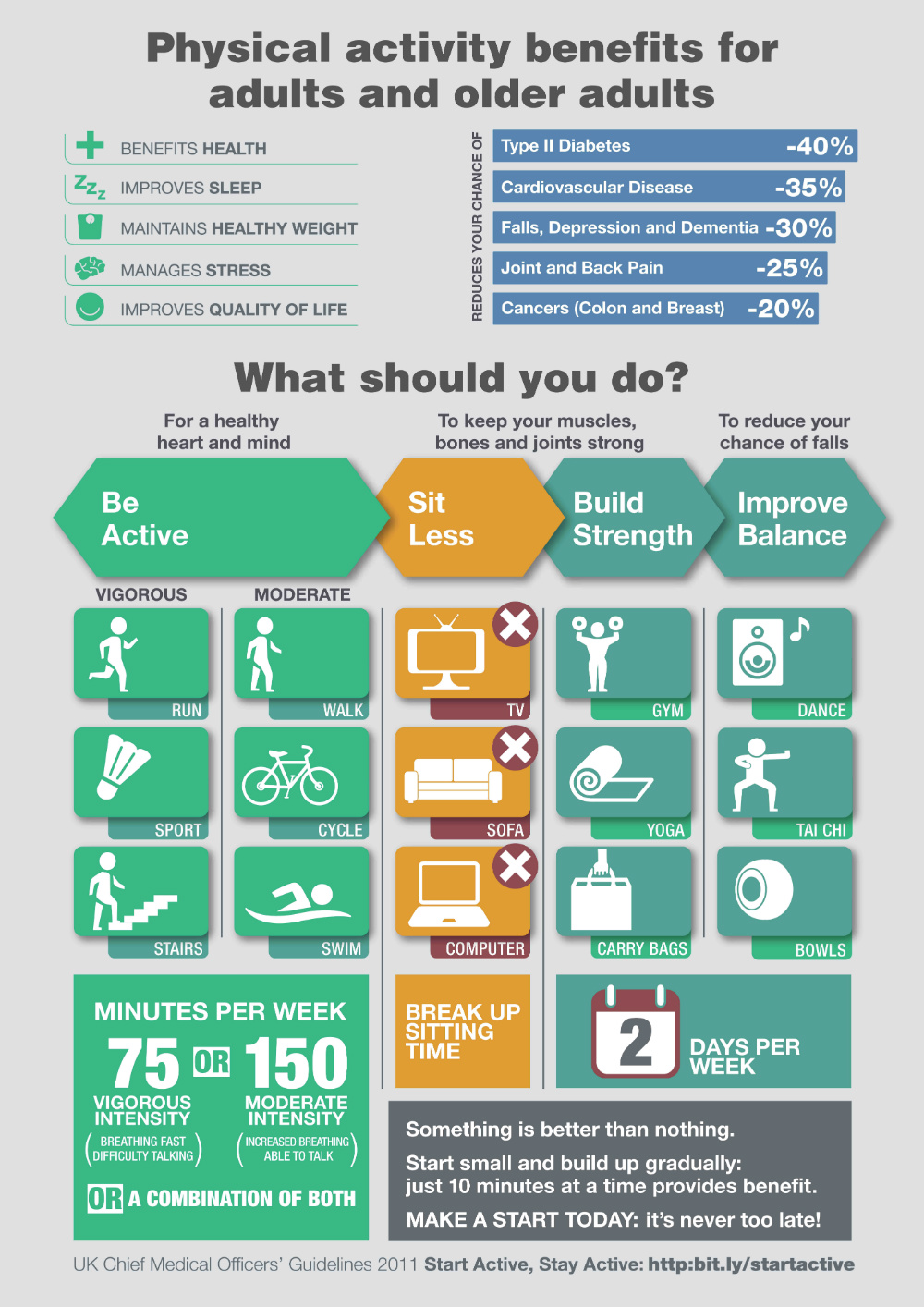
Almost a year ago, we published Everybody Active, Every Day – an evidence-based approach to physical activity in England.
This set out four key domains for action at national and local level to move the population into every day activity with the aim of improving health and wellbeing for all.
One of the four domains focused on the professionals who influence us during those pivotal “touchstone” moments in our lives - deciding to have children, the first day at school or a new job, major health events, bereavement or end of life choices.
These professionals – town planners, teachers, doctors, nurses and personal trainers – play a significant role in the decisions people make during these touchstone moments, adding to the vocational privilege that underpins their career choices.
Encouraging professionals to integrate physical activity into their every day practice should start as part of their basic training and continue throughout their career - at a systemic level, woven into the learning environment for all professionals.
Over the last year PHE has focused on engaging healthcare staff, recognizing that they remain one of the most trusted and influential professional groups in England.
The Chief Medical Officer sets out clear evidence-based guidelines of the activity levels children, adults and older people should be aiming for to have the optimum impact on their health and wellbeing.

The launch of the CMO infographic above for adults, developed with support from PHE, helps simplify these guidelines for professionals from all backgrounds. PHE is already working with the CMO’s expert group on a similar infographic for children’s guidelines.
Professional resources
Working with an international collaborative of academics led by Prof. Patrick Callaghan from Nottingham University and Ann Gates from ExerciseWorks, PHE has supported the development and evaluation of a new set of undergraduate teaching resources on physical activity for healthcare professionals.
The resources are designed to form part of mainstream curriculum teaching, as opposed to as an opt-in special study module. So far over 20 medical and nursing schools across the UK have engaged to include the resources in their teaching.
Our hope is that every healthcare professional in England will understand the important role that physical activity plays in prevention and treatment of disease.
At the start of 2015 we also published a set of free e-learning resources with BMJ Learning to support clinicians integrating physical activity into the prevention and treatment of long term conditions.
The nine modules on long-term conditions and the additional module on motivational interviewing have remained some of the most popular on the platform. In the first six months over 3,500 doctors completed at least one module, coming from over 100 different clinical specialisms.
And in 2014/15 we piloted a peer-to-peer teaching programme working with Dr Zoe Williams, a GP from Southwark and our first GP Physical Activity Clinical Champion. Clinical Champions provide free structured training to doctors or trainee doctors to improve understanding of physical activity in clinical practice so they can integrate very brief advice into their day to day clinical practice.
Building on this success we have expanded the pilot to six regions (London, East of England, North East & North West, West Midlands and South West) with 15 GP champions and two Sports and Exercise Medicine Higher Specialist Trainees.
In this pilot phase we are evaluating the impact of the teaching on clinical practice and build the evidence base around healthcare education in England.
Working with partners to support change across the healthcare system
Alongside these interventions PHE has been promoting physical activity for health care professionals through medical conferences and events. Working with the Faculty of Sport and Exercise Medicine, the Academy of Medical Colleges and NHS England, we're seeking to change the social norms for doctors so discussions around physical activity are as common as asking about smoking. As a result, the aspiration of Making Every Contact Count becomes a reality.
https://www.youtube.com/watch?v=Hy-YdeDySOg
Focusing on healthcare professionals has given us an opportunity to explore how to effectively integrate physical activity across the educational life-course with a view to changing the culture of healthcare professionals within a generation.
We hope moving forward to grow and expand this approach across other professional groups and other topic areas. As part of this, we ha also launched ‘What works in schools and colleges to increase physical activity’ which is aimed at head teachers, college principals and staff working in education settings.
We hope that we can truly create the fundamental cultural shift that is required to improve not just the health of the population today but for generations to come.

1 comment
Comment by Andrew McCoig posted on
At last - an initiative that focuses on getting our own house in order. It appeals to me that someone has recognised the simple fact that overweight hcps cannot tell overweight patients to shed weight. There are far too many hcps that obviously ignore simple lifestyle choice realities and the sooner we address this the better